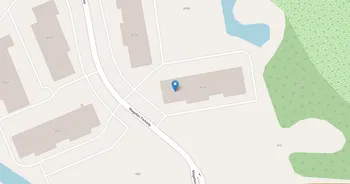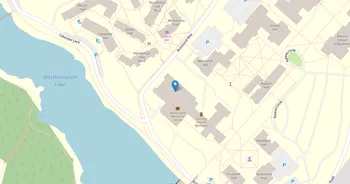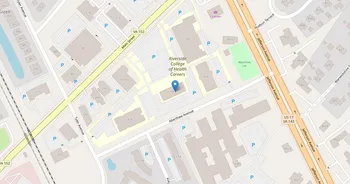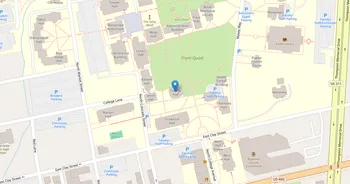Richard Bland College (RBC) : Overview, Courses, Scholarships & Rankings
About Richard Bland College
Set on a quiet, wooded campus, Richard Bland College is known for strong transfer pathways and a focused academic start. Students build a solid foundation across the liberal arts, business basics, STEM fundamentals, and health related studies. Classrooms and labs feel up to date, the library stays busy, and student help is easy to find with advising, tutoring, and success coaching. On campus housing, study lounges, and a student center make it easy to settle in and get work done without feeling rushed.
Life here leans close knit. Clubs, service projects, and rec sports keep things social, while walking trails and open fields offer breathing room after class. The culture favors first names, clear expectations, and a steady push toward the next step. Career services help with resumes, interviews, and connections to regional employers, and many students explore internships nearby. With historic towns and the greater Richmond area within reach, there are plenty of arts, history, and volunteer options. A distinctive tie to a larger university system gives RBC a transfer minded identity, with traditions that celebrate milestones and community more than spectacle.
Key Institutional Details
Contact & Profile
Academic & Institutional
Academic Programs & Fields of Study
Richard Bland College (RBC) offers 6 degree programs across 5 major academic fields, graduating approximately 192 students annually. The most popular fields by graduate volume are Physical Sciences (1 programs, 151 graduates), Business (1 programs, 16 graduates), Interdisciplinary (2 programs, 13 graduates), Liberal Arts (1 programs, 9 graduates) and Biological Sciences (1 programs, 3 graduates). Explore program details, award levels, and graduate demographics below.
Physical Sciences (1 programs, 151 graduates)
Chemistry, Physics and Earth Sciences Research
| Program Name | Graduates | Gender Distribution | Award Levels | CIP Code |
|---|---|---|---|---|
| Physical Sciences | 151 |
|
Associate's
|
40.0101 |
Business (1 programs, 16 graduates)
Business Administration, Marketing and Entrepreneurship
| Program Name | Graduates | Gender Distribution | Award Levels | CIP Code |
|---|---|---|---|---|
| Business Administration and Management | 16 |
|
Associate's
|
52.0201 |
Interdisciplinary (2 programs, 13 graduates)
Cross-Disciplinary Studies and Integrated Research Programs
| Program Name | Graduates | Gender Distribution | Award Levels | CIP Code |
|---|---|---|---|---|
| Behavioral Sciences | 8 |
|
Associate's
|
30.1701 |
| Mathematics and Computer Science | 5 |
|
Associate's
|
30.0801 |
Liberal Arts (1 programs, 9 graduates)
Liberal Arts Education, General Studies and Humanities
| Program Name | Graduates | Gender Distribution | Award Levels | CIP Code |
|---|---|---|---|---|
| Liberal Arts and Sciences | 9 |
|
Associate's
|
24.0101 |
Biological Sciences (1 programs, 3 graduates)
Life Sciences, Biotechnology and Biomedical Research
| Program Name | Graduates | Gender Distribution | Award Levels | CIP Code |
|---|---|---|---|---|
| Biology and Biological Sciences | 3 |
|
Associate's
|
26.0101 |
Admission Requirements & Test Scores
Comprehensive overview of admission criteria, standardized test score ranges, and application requirements for prospective students at Richard Bland College (RBC).
Application Requirements
Data based on IPEDS for 2022-2023 academic year. Test score ranges represent the middle 50% of admitted students (25th-75th percentile). Requirements may vary by program.
Tuition, Fees & Estimated Costs
Overview of tuition rates, housing, and other annual education expenses for undergraduate and graduate students
Financial Aid & Student Support
Summary of scholarships, grants, student loans, and financial aid statistics for undergraduate students
Student Success Metrics
Graduation rates and post-graduation earnings to help assess student outcomes and long-term value of education.
Loan Burden & Repayment Outcomes
Breakdown of loan repayment rates and student debt levels by income and dependency status.
Frequently Asked Questions
Find answers to the most common questions about Richard Bland College (RBC)
How much does it cost to attend Richard Bland College (RBC)?
The annual tuition at Richard Bland College (RBC) is $8,850 for in-state students and $14,910 for out-of-state students. When including room and board, books, and other expenses, the total estimated cost is approximately $25,690 for in-state students and $31,750 for out-of-state students. Additional costs include room and board $14,140 (on) / $5,020 (off) and books and supplies $1,200.
Data based on IPEDS program completions for 2022-2023 academic year. Tuition and cost estimates are approximate and may not include all fees, personal expenses, or transportation costs.
What academic programs and degree levels does Richard Bland College offer?
Richard Bland College (RBC) offers 6 academic programs across 5 major fields of study, with available degree levels: Associate's, Other Award.
Most popular program areas include:
- Chemistry, Physics and Earth Sciences Research (1 programs)
- Business Administration, Marketing and Entrepreneurship (1 programs)
- Cross-Disciplinary Studies and Integrated Research Programs (2 programs)
- Liberal Arts Education, General Studies and Humanities (1 programs)
- Life Sciences, Biotechnology and Biomedical Research (1 programs)
Data based on IPEDS program completions for 2023-2024 academic year. Numbers reflect programs where students graduated, not all offered programs.
What is the acceptance rate for Richard Bland College?
Richard Bland College (RBC) has an 71.9% acceptance rate and a 33.7% yield rate, making it selective.
Admission statistics breakdown:
- Total applicants: 1,747
- Students admitted: 1,256
- Students enrolled: 423
Data based on IPEDS for 2022-2023 academic year. Admission statistics may vary by program and application cycle.
What financial aid and scholarships are available at Richard Bland College?
Richard Bland College (RBC) provides financial aid to 14% of first-time, full-time students, with average grants of $11,357 and average loans of $4,897.
Average financial aid amounts by type:
- Pell grants: $5,620
- State/Local grants: $6,311
- Institutional grants: $4,288
- Federal loans: $4,467
The university supports 224 students with grants and 156 students with loans annually.
Data based on IPEDS for 2022-2023 academic year. Financial aid amounts and percentages may vary by program, enrollment status, and individual circumstances.
What is the average salary for Richard Bland College graduates?
Richard Bland College (RBC) graduates earn a median salary of $34,377 after 6 years and $41,452 after 10 years.
The salary range 10 years after graduation spans from $25,607 (25th percentile) to $59,656 (75th percentile), with top earners reaching $61,600 (90th percentile).
Data based on IPEDS for 2022-2023 academic year. Salary data reflects graduates who received federal financial aid (approximately 60% of all graduates). Actual earnings may vary significantly based on program, location, and individual circumstances.
Related Universities




Found something useful? Help others discover it too! Share with friends, on social media, or save for later - every share helps someone find the information they need.